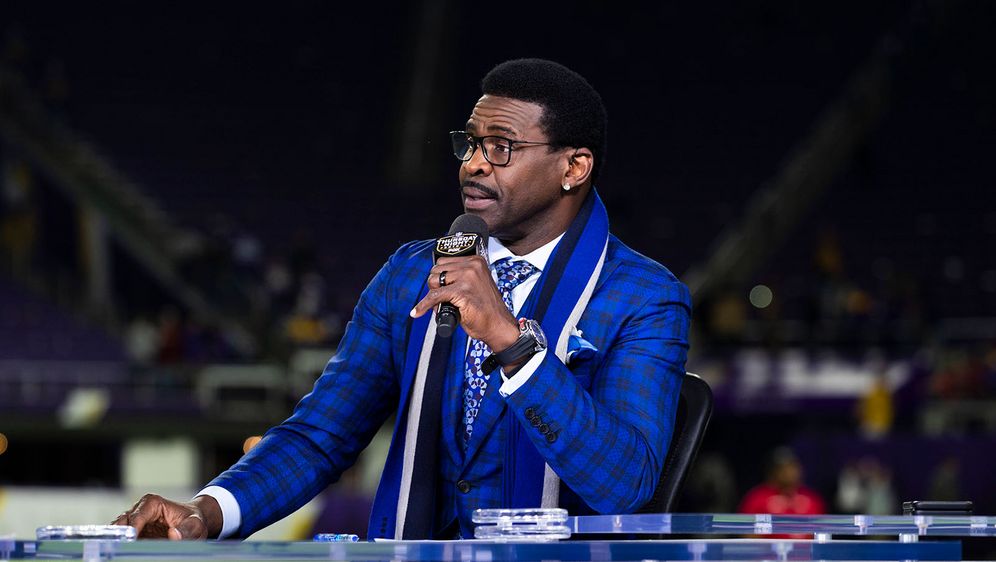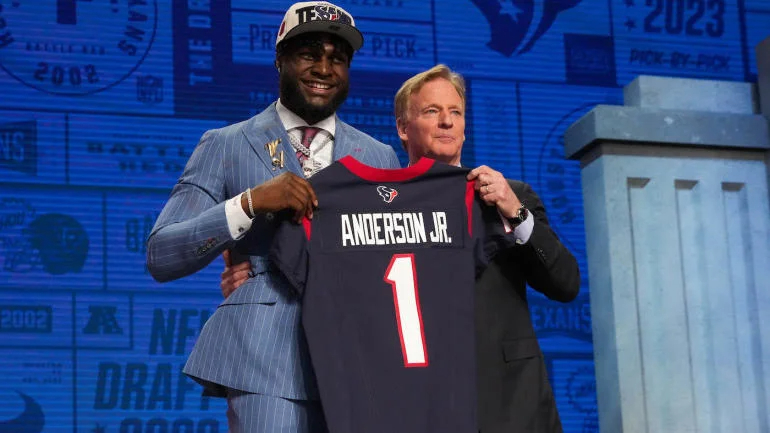The interpretation of the Taunting Rule in its current form takes emotion out of the game, brings uncertainty and in the worst cases even decides games. It also fosters anger among players, coaches and officials. The NFL urgently needs to react, thinks ran writer Mike Stiefelhagen. A commentary.
Munich – “Taunting” is gradually developing into the NFL un-word of the year 2021. That has to end now.
In the meantime, it is no longer bearable as a spectator and even more difficult: to comprehend. Since the 2021 NFL season, the so-called Taunting Rule, i.e. taunting the opponent or the opposing team, has been interpreted more strictly and pettily than ever before. The approach is reasonable to say you want to stop disrespect.
Current Taunting Interpretation: Too subjective, too unfair
But since this is often interpreted very subjectively, it is almost impossible to comprehend as a fan and even more so as a player: What am I allowed to do now after a successful action and what not? Nobody wants to see disrespectful cheering, but football is a very emotional sport, characterised by many mood swings, strong individual actions and a rollercoaster of adrenaline.
This should be allowed to be reflected in cheering gestures, as long as they don’t go below the belt. In this NFL season, too many actions have been penalised – which then turn out to be hefty: 15 yards of space loss and an automatic first down for the opponent.
Taunting rule made a mockery of
To name a few examples: Raiders tight end Darren Waller was assessed the taunting penalty when he stepped over an opponent after a catch, even though he had to do so to maintain balance. Eagles pro Genard Avery got the full taunting penalty in Week 6 after he fairly carried running back Leonard Fournette off the field in a key moment against the superior Bucs. Fournette fell to the ground and got up, lightly pushing his helmet against Avery’s. Avery responded with words and pushed back. Taunting. But only against Avery. Gifted yards.
Because 15 yards and an automatic new first try can be game-changing in some circumstances. This is how the current taunting rule culminated in its ridiculousness in the Chicago Bears’ game against the Pittsburgh Steelers. Only a few minutes before the end, defensive end Cassius Marsh stopped Steelers quarterback Ben Roethlisberger on a third down with a sack – completely within the rules. And cheered afterwards, looking – without shouting or screaming a word – towards the Steelers bench. Enough for referee Tony Corrente to penalise Taunting. That aside, the referee threw the flag only after, oddly enough, he still blocked Marsh’s path with a hip check.
Taunting rule wrongly decides games
The Bears pro was visibly shocked after the game and has never been charged for this type of cheer, which he has executed his entire career. And he’s been in the NFL since 2014. The Steelers win the game in the end by a narrow margin, in part because the Bears were assessed that penalty late in the game. And no fan can want that, games being decided because of the taunting rule – especially since the referee obviously subjectively misinterpreted that action.
There are already many voices – including from the NFL – who are unhappy with the current taunting interpretation. Seahawks coach Pete Carroll has been upset with the nature of the rule since week two: “The NFL has created something we can’t like with this.” Buccaneers quarterback Tom Brady responded to a tweet saying the new taunting rule “stinks” and agreed. Packers quarterback Aaron Rodgers (“i still own you”…) is also unhappy: “The rule is too subjectively interpreted. “
It lacks better definition and a video referee to relieve the pressure
The clear line is missing: what is taunting and what is not? As long as this is not clear, this rule is not tenable and destroys the fun of the game even for neutral fans of the sport. If necessary, such penalties, because they have such severe consequences, must be reviewed again via video decision. This would also protect and relieve the referees on the pitch.
We want to see emotions. We want entertainment and not players functioning like robots. There needs to be a clear definition: What is taunting and disrespectful? The NFL should react urgently here, otherwise we’ll soon be discussing playoff elimination – or even worse – the Super Bowl decision because a referee somehow misinterpreted a gesture as taunting.
Protect the Emotions
For me, derogatory gestures in the direction of the opponent, as well as hazing the surroundings and obscene or insulting speech would be clear taunting. Don’t misunderstand: certain types of “trash talk” are fine and belong, but that must not become offensive or personally dirty. This must be stopped and punished. Is there any doubt? Let a video referee re-evaluate the scene. That would make taunting more understandable.
Everything else has to be protected. Otherwise it destroys in sport what we fans and players love most: Emotion.






Comments
No Comments